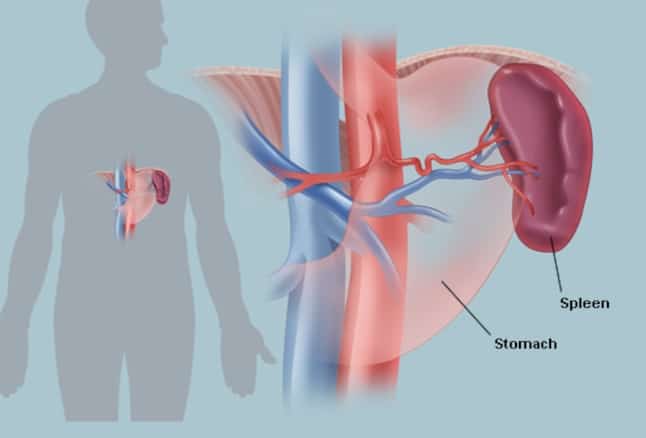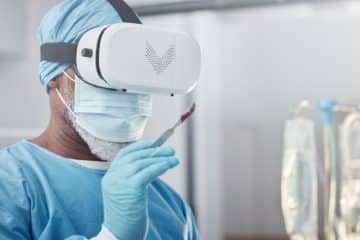The spleen is a purple-colored organ located in the upper left region of the abdomen, to the left of the stomach. It is fist-shaped and about 4 inches long.
The spleen functions primarily to filter the blood and fight off infections. There may be a need to remove the spleen in some circumstances due to injury or infection and the patients may be wondering, “Can you live without your spleen?”. The answer to that question is ‘Yes, you can live without your spleen’.

Spleen
Indications for Spleen Removal
A splenectomy is a surgical procedure that partially or completely removes the spleen.
There is a need for the removal of the spleen under the following circumstances:
1. Splenic abscess – This refers to the collection of pus in the spleen. It may arise either from the spread of infection from a neighboring organ (that is, a diverticular abscess or a ruptured gastric ulcer) or from the hematogenous spread in patients with infective endocarditis.
2. Splenic cancer – If the spleen becomes cancerous, there may be a need for the spleen to be removed before it spreads to other vital parts of the body. As you can live without your spleen, it is better to remove the spleen before cancer spreads to other organs you can’t live without.
3. Wandering spleen – Wandering spleen (or Pelvic spleen) is a rare medical disease caused by the loss or weakening of the ligaments that help to hold the spleen stationary. Wandering spleen is also called displaced spleen, drifting spleen, Solenopsis, floating spleen, or splenic ptosis.
4. Ruptured spleen – A ruptured spleen can lead to life-threatening internal bleeding. Common injury-related causes of a ruptured spleen include car accidents and severe blows to the abdomen during contact sports, such as football or hockey. This could result in internal bleeding which can be life-threatening.
5. The spleen is also removed for long-term treatment of congenital pyruvate kinase (PK) deficiency.
Can you live without a spleen?
Yes, you can live without your spleen. It’s an important organ, but not essential. If it’s damaged by disease or injury, it can be removed without threatening your life.
Following splenectomy (removal of the spleen), many things need to be done to ensure your overall long-term health. Because the spleen plays a very important role in supporting the strength of the immune system, people without a spleen are more prone to infections. For this reason, your doctor will likely recommend that you get vaccinated against infections like Influenza (the flu), meningitis, chickenpox, measles, HPV (human papillomavirus), tetanus, pneumonia, etc.
Moreover, antibiotics are often prescribed to be taken daily for the first two years after you have had your spleen removed, and some people may be advised to take them daily for life. People living without a spleen are advised to keep a full course of antibiotics on their person always.
Doctors, dentists and other health care workers should always be told if you have no spleen.
Read More: Rib Removal Surgery


